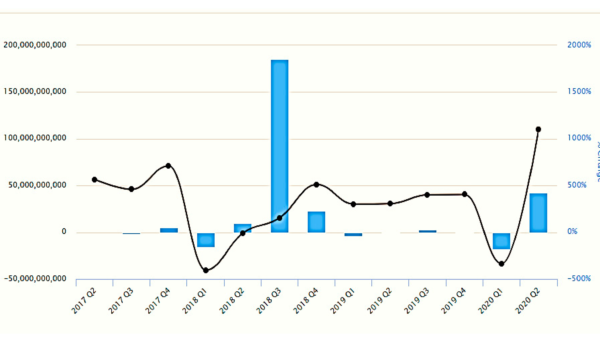Introduction to the Financial Challenges Facing Gen Xers
The current retirement landscape poses significant financial challenges for Generation X, those born between 1965 and 1980. A recent analysis by Morningstar’s Center for Retirement and Policy Studies indicates a startling prognosis: 45% of U.S. households risk a financial shortfall if they retire at the traditional age of 65. The figure escalates to 54% for those who consider early retirement at age 62. These alarming statistics highlight the precarious financial situation many Gen Xers face as they approach retirement.
One of the principal reasons behind this increased financial risk is the ongoing shift from defined-benefit pension systems to defined-contribution systems. Historically, defined-benefit plans guaranteed retirees a specific monthly payment based on their earnings and tenure. However, the gradual decline of these plans has led to the proliferation of defined-contribution plans, such as 401(k)s, which place the onus of saving and investing on the individual rather than the employer. This structural transformation has left many Gen Xers unprepared for a secure retirement, as they often struggle with inconsistent saving habits and insufficient employer contributions.
The significance of understanding these financial challenges cannot be overstated. As the first generation primarily reliant on defined-contribution plans, Gen Xers are navigating uncharted waters in terms of retirement planning. The financial stability of this demographic has broader implications for the economy, given that inadequate retirement savings can lead to increased dependence on social safety nets and reduced consumer spending. Moreover, the lack of a financial cushion may force older workers to stay in the labor market longer, thereby impacting overall job opportunities and wage growth for younger colleagues.
Addressing these issues necessitates a multi-faceted approach, including enhanced financial literacy, better retirement planning, and policy interventions aimed at providing more robust safety nets. The urgency of tackling these problems is paramount to ensure the financial well-being of Gen Xers and to safeguard the economic stability of future generations.
The Shift from Defined-Benefit to Defined-Contribution Systems
The transition from defined-benefit pension plans to defined-contribution plans has significantly transformed the retirement landscape for many workers, particularly impacting the financial security of Generation X. Traditionally, defined-benefit (DB) pension plans provided retirees with a guaranteed, employer-funded fixed monthly income based on salary and years of service. This system ensured a predictable and stable source of income, helping retirees to plan their future with a sense of financial certainty.
In contrast, defined-contribution (DC) plans, such as 401(k)s, entrust the responsibility of saving and investing for retirement largely to the employees themselves. Under this model, neither the amount of the contribution nor the final benefit is fixed, as it depends on the accumulated savings and investment returns. This shift from DB to DC plans has fundamentally altered how individuals must approach their retirement planning.
The implications of this shift are profound. Generation Xers, who are now nearing retirement, find themselves bearing greater responsibility for managing and growing their retirement funds. Unlike previous generations who could rely on a stable pension, today’s workers must navigate complex investment choices, market volatility, and the risk of outliving their savings. The transition demands not only financial literacy but also consistent, disciplined savings habits over a working lifetime.
Several challenges accompany this new retirement paradigm. One prominent issue is the lack of adequate savings. Studies indicate that many individuals do not contribute enough to their DC plans, often due to financial constraints or a lack of awareness about the importance of early and regular savings. Furthermore, the investment aspect poses additional risks. Poor investment decisions, influenced by limited knowledge or market downturns, can significantly deplete retirement savings. Economically disadvantaged individuals, who might lack access to employer-sponsored plans or sufficient disposable income to contribute, are particularly vulnerable in this system.
This shift from defined-benefit to defined-contribution plans has undeniably placed a heavier burden on individuals to ensure their own financial security in retirement. While DC plans offer the potential for substantial growth, they also introduce risks and uncertainties that previous generations with DB plans were largely shielded from, highlighting the need for better financial education and support systems to help Gen Xers navigate these challenges effectively.
Reasons Gen Xers Are More at Risk
Gen Xers, now at the cusp of retirement, find themselves grappling with unique financial challenges that put their future stability at risk. One of the primary issues is insufficient savings. Many Gen Xers have been unable to accumulate enough funds for a comfortable retirement, often due to years of wage stagnation and high living costs. Unlike their younger colleagues, they had less time to benefit from the recent advancements in financial technologies and investment tools.
Inadequate investment knowledge also plays a significant role. Many individuals in this generation lack confidence in managing investments and navigating the increasingly complex financial landscape. This knowledge gap limits their ability to maximize returns and safeguard their retirement funds effectively.
Economic downturns have further compounded these problems. Gen Xers have endured multiple financial crises, including the dot-com bust and the Great Recession, which have eroded their savings and shaken their financial confidence. These economic shocks have often resulted in job losses, reduced wages, and lower returns on investment, all impeding their ability to save adequately for retirement.
Rising healthcare costs present another formidable challenge. As healthcare expenses continue to soar, many Gen Xers are finding themselves financially strained, needing to allocate more funds to cover medical bills—money that could otherwise bolster their retirement savings.
Longer life expectancies add another layer of complexity. While living longer can be seen as a positive development, it also means needing more savings to sustain a longer retirement period. This extended timeframe requires more rigorous financial planning than what previous generations faced.
Additionally, financial responsibilities such as funding children’s education, paying down mortgage debt, and caring for aging parents consume significant portions of Gen Xers’ incomes. These obligations divert funds away from retirement savings, creating a precarious financial situation. In comparison, younger colleagues often benefit from starting financial planning earlier in their careers, utilizing digital financial tools, and adopting more proactive saving habits.
All these factors converge to create a perfect storm for Gen Xers, posing significant risks to their financial stability as they approach retirement.
Strategies for Mitigating Financial Risks in Retirement
As Generation X approaches retirement, it is crucial to implement strategies that address financial risks and secure a stable future. One of the most effective ways to prepare is by increasing savings rates. Gen Xers should aim to allocate a higher percentage of their income towards savings and specifically contribute to retirement accounts such as 401(k)s and IRAs. The earlier and more consistently these contributions are made, the greater the compounding effect on their retirement funds.
Seeking professional financial advice can also significantly improve retirement readiness. Financial advisors can provide personalized plans, investment strategies, and risk assessments tailored to individual needs and circumstances. They can help in building a diversified investment portfolio, which is essential to minimize risk by spreading investments across various asset classes, such as stocks, bonds, and real estate. Diversification can safeguard against market volatility and potential financial downturns.
Maximizing contributions to retirement accounts is another critical strategy. Taking full advantage of employer matches in 401(k) plans ensures that no free money is left on the table. Additionally, Gen Xers should consider catch-up contributions if they are aged 50 or older, as these allow for higher annual contributions, giving a significant boost to retirement savings.
Financial literacy plays a pivotal role in long-term financial health. Ongoing education on topics such as investment options, retirement planning, and tax strategies can empower Gen Xers to make informed decisions. Utilizing government and employer-provided resources can also aid in preparation. Programs like the Social Security Administration’s resources, pension plans, and health savings accounts (HSAs) offer additional financial stability and benefits that should be thoroughly understood and utilized.
Proactive planning is essential to mitigate financial risks. Adjusting retirement expectations to align with economic realities and personal financial situations can help in setting realistic goals and timelines. Continually reassessing and updating retirement plans ensures they remain effective and relevant over time. Through diligent savings, professional advice, diversified investments, and leveraging available resources, Gen Xers can better prepare for a financially secure retirement.
































